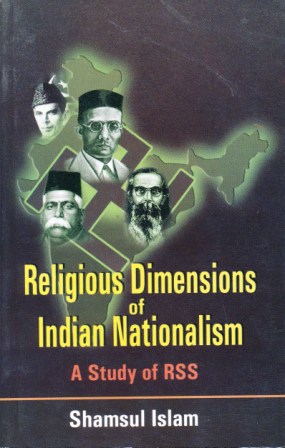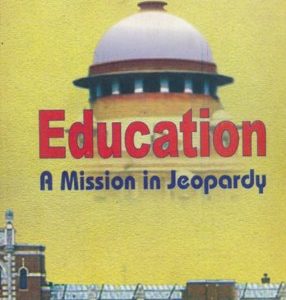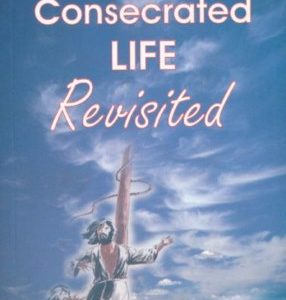Description
Religious Dimensions of Indian Nationalism
A Study of RSS
In this groundbreaking effort, Shamsul Islam takes a thorough look into the actions of those proponents of the two-nations theory who have escaped being blamed for India’s Partition in 1947. While the culpability of Muslim League led by Jinnah is known, the role of many other equally important organizations and people remains under wraps. Although the Muslim League’s version of the two-nations theory has banished, the equally insidious RSS” two-nations theory remains part of mainstream discourse. This book attempts to know the RSS, as the Partition of India in 1947 is not a finished story as yet. Powerful forces in India continue to live by this theory and are working overtime to undo a democratic-secular India.
Shamsul Islam has spent over three decades collecting original and until now inaccessible and unavailable RSS documents in order to demonstrate that its ideology amounts to a system of religious apartheid, where nationalism is intertwined with a particular notion of religion. Islam also investigates at length how Savarkar’s Hindutva (1923) and Golwalkar’s We or Our Nationhood Defined (1939) continue to determine the discourse of Hindu nationalism today.
The publication of Shamsul Islam’s study of the ideology of the RSS is […) very timely because the ideological challenge of Hindutva remains a potent threat to the Indian | Constitution and a pluralistic and harmonious ordering of Indian society.
Professor Richard Bonney j
It is an in-depth study of the origin of RSS and the two-nations theory and the evolution of Hindutva ideology in India. For the first time certain sources have been used and that makes it a unique work of scholarship. Professor Manoranjan Mohanty
: It is a careful and thought provoking study of the RSS. It seeks to carry the debate over the i character of Indian nationalism forward and to locate it in the nature and character of the I RSS both as an organization and as a movement. It is written after extensive research on ! ; the source materials and reflects a deep and long engagement with the subject. I_____._________ Professor imtiaz Ahmed j
It is an execellent work, politically very important and academically brilliant.
Dr. Ram Puniyani
Dr. Shamsul Islam teaches Political Science in Satyawati College, University of Delhi. As an author, columnist and street theatre activist he is known for his unrelenting opposition to religious intolerance, dehumanisation, imperialism and persecution of women and Dalits.
Preface and Introduction by Professor Richard Bonney
Author’s Preface
Author’s Introduction
Chapter 1: The Origins of Indian Nationalism
Impediments in the Growth of Indian Nationalism 82 The Origin of Racial Nationalism
How Natural is Nationalism?
Modernist Debate over the Nature of Indian Nationalism
Chapter 2: The Making of the Hindu and Muslim Variants of Nationalism
Two Primordial Nations?
The Nature of ‘Muslim’ Rule
Composite Nationalism
Bifurcation of Nationalism: Rise of Hindu
Separatism
Characteristics of Hindu Nationalism
Myth Making and Hero Creation
Constructing Muslim Nationalism
Chapter 3: The Institutionalization of Hindu Nationalism:
The Origins of the RSS
Divide and Rule 146 Jallianwala Bagh Massacre and Hindu-Muslim
Unity
Hedgewar: Early Years
Hedgewar’s Links with Congress
Disillusionment with Hindu-Muslim Unity
The Formation of RSS
The Functioning of RSS
The Spread of RSS
The High Caste Bias
Anti-Muslim Activities
Participation in Politics
Opposition to the Designs of the RSS
The RSS Under Golwa/kar
Chapter 4: The RSS and the Freedom Struggle
The Search for a Role in the Freedom
Movement
Problems of ‘Constructing’ a Role
Rewriting History
Hatred for the Revolutionary Tradition
Hatred towards the Tricolour
RSS’ Support to Hindu Princess
The RSS Dilemma
Chapter 5: The Strategy of Hegemony: The Changing RSS
Concept of Hindu Nationalism
Part 1 Savarkar’s Hindutva
Savarkar’s Early Phase
Road to Hindutva
Hinduism and Hindutva
Only Hindus constitute Indian Nationality
Fundamentals of Hindutva: Racism, Casteism
and World Domination
Part 2 Golwalkar’s Nationhood
Defence of Casteism
Defence of Racism
Idolizing Nazi Germany and Fascist Italy
Hindu Nationalist Ideology and Race Theory
The Superiority of the Hindu Race
Reasons for Standing Aside from the Freedom
Movement
Controversy over We or Our Nationhood
Defined
Part 3 Deendaya! Upadhyaya’s Hindutva
Finding Fault with Composite Nationalism
Remodelling Hindu Nationalism
Imperialistic Ambitions of Hindu Rashtra
Attitude Towards Minorities
Defence of Casteism
Madhok’s Indianization
Chapter 6: Conclusion: Casteism at the Core
Some of the ‘Constructed’ Myths 254
The Real Design of Hindutva 258
Appendix One: List of Organizations created by the
RSS
Appendix Two: Nana Deshmukh’s ‘Moments of Soul Searching’
References and Notes
Bibliography
Index




Reviews
There are no reviews yet.